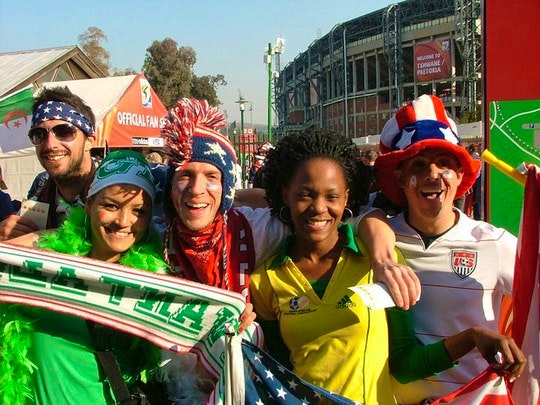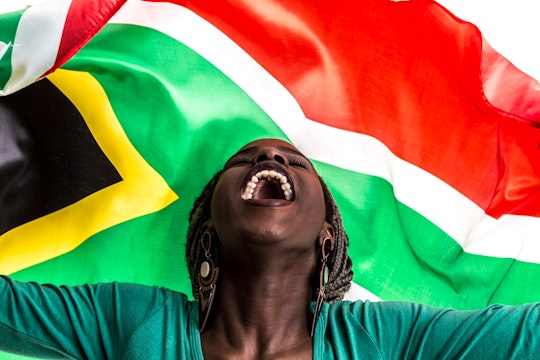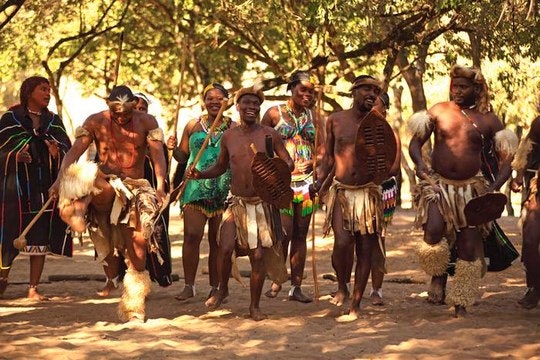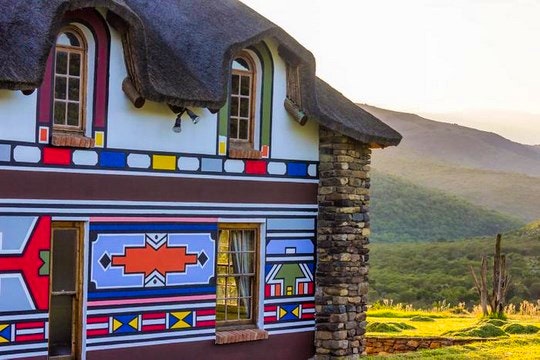It only takes 7 basic colours to make a rainbow. So with 11 official languages, each granted equal status by our Constitution, it’s easy to understand why South Africa is fondly known as the “Rainbow Nation”. With so many beautiful shades, our cultural and ethnic diversity is so rich that often we as South African citizens don’t even understand one another.
We’re sharing some basic greetings and words in South Africa’s 11 official languages because, as our dear Madiba said, when you speak to someone in their mother tongue, you speak straight to their heart.
isiZulu
11.5 million speakers. Predominantly spoken in KwaZulu-Natal, Zulu is understood by at least 50% of South Africans.
Hello! – Sawubona! (to one) / Sanibona! (to many)
How are you? – Unjani?
I’m fine, thanks. – Ngikhona, ngiyabonga.
Nice to meet you – Ngiyajabula ukukwazi!
Thank you – Ngiyabonga
You’re welcome – Kulungile
Yes – Yebo
No – Cha
More Zulu words.
isiXhosa
8.1 million speakers. The Xhosa originated from the Eastern Cape region and have a complex language characterised by clicking sounds, denoted by “c”, “x”, and “q”.
Hello! – Molo (to one) / Molweni (to many)
How are you? – Unjani? (to one) / Kunjani? (to many)
I’m fine – Ndiphilile
Nice to meet you – Ndiyavuya ukukwazi
Thank you – Ndiyabulela
You’re welcome – Wamkelekile
Yes – Ewe
No – Hayi
More Xhosa words.
Afrikaans
6.8 million speakers. Arguably the youngest language in the world (recognised as an official language in 1925), Afrikaans is the second most spoken language in South Africa. The language evolved from Dutch, French, Malay, Khoi Khoi, and other influences.
Hello! – Haai! / Hallo!
How are you? – Hoe gaan dit met jou/u?
I’m fine, thanks – Goed, dankie
Nice to meet you –Aangename kennis
Thank you – Baie dankie (famously pronounced “buy a donkey”)
You’re welcome – Jy’s welkom
Yes – Ja
No – Nee
More Afrikaans words.
English
4.9 million speakers. English is the most commonly spoken language in official and commercial public life, but only 8.2% of the population speak it as a home language. Many words used in South African English are influenced by other languages, and terms like kraal (village of huts) and trek (travel by ox-wagon) have even been incorporated into the traditional Oxford Dictionary. You’ll most likely be greeted with a “Hi”, “Hey”, or “Howzit” by English South Africans.

Sepedi
4.6 million speakers. Also referred to as Northern Sotho, Sepedi is the language of the Pedi people of Mpumalanga and Limpopo.
Hello – Dumela (to one) / Dumelang (to many)
How are you – O kae? (to one) / Le Kae? (to many)
I’m fine – Ke gona
Thank you – Ke a leboga
Yes – Ee
No – Aowa
More Sepedi words.
Setswana
4 million speakers. The Batswana people are predominantly from the north western regions of South Africa.
Hello – Dumela
How are you – O tsogile jang? Le kae? (to one) / Le tsogile jang? (to many)
I’m fine, thanks – Ke tsogile sentle / Re teng
Nice to meet you – Ke itumelela go goitsi
Thank you – Ke a leboga
You’re welcome – O amogelesegile
Yes – Ee
No – Nyaa
More Tswana words.
Sesotho
3.8 million speakers. Sesotho originated from the Mountain Kingdom of Lesotho and is often referred to as Southern Sotho.
Hello – Dumela (to one) / Dumelang (to many)
How are you – O kae?
I’m fine – Ke teng
Nice to meet you – Ke thabela ho u tseba
Thank you – Ke a leboha
You’re welcome – O amohetswe
Yes – Ee
No – Che / Aikona
More Sesotho words.
Xitsonga
2.3 million speakers. Xitsonga is spoken by the Batsonga people (also called the Shangaans) in the Limpopo Lowveld.
Hello – Avuxeni
How are you – Ku njhani?
I’m fine – Ndzi kona
Thank you –Ndzi khense ngopfu
Yes – Ina
No – E-e
More Tsonga words.
siSwati
1.3 million speakers. Originating in Swaziland, siSwati is spoken by a third of the people of Mpumalanga.
Hello – Sawubona
How are you – Unjani?
I’m fine – Ngikhona
Thank you – Ngiyabonga
Yes – Yebo
No – Cha
More Swati words.
Tshivenda
1.2 million speakers. Tshivenda is the language of the Venda people in the Mapungubwe area of Limpopo. The Venda are culturally closer to the Shona people of Zimbabwe than any other South African group.
Hello – Ndaa/Aa
How are you – Vho vuwa hani?
I’m fine, thanks – Ne ndo takala vhukuma.
Thank you – Ndi a livhuwa
Yes – Ee
No – Hai
More Venda words.
isiNdebele
1 million speakers. The Ndebele people live mainly in Limpopo and Mpumalanga, but can also be found throughout Gauteng.
Hello – Lotjhani / Salibonani
How are you – Unjani (to one) / Linjani (to many)
I’m fine – Ngikhona / Sikhona
Nice to meet you – Kuhle ukukubona
Thank you – Ngiyabonga
You’re welcome – Kulungile
Yes – Lye / Ye
No – Hayi
More Ndebele words.
*Statistics gathered from 2011 reports at SA Languages website.
What language(s) do you speak?







